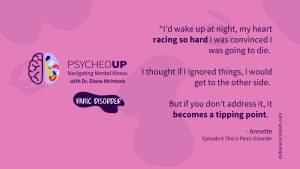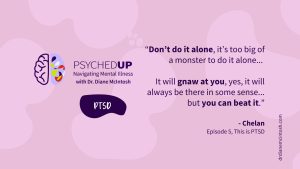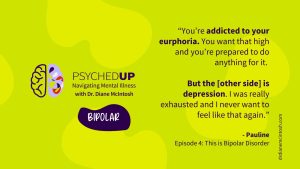Dr. Diane McIntosh and Louise Bradley
As two people who have spent our professional lives advocating for compassionate, equitable treatment and services for people living with mental illness, we are dismayed at the current tenor of the debate around extending Medical Assistance In Dying (MAID) to individuals with mental illness as the sole underlying condition.
Recognizing there are ideological crusaders on both sides of the divide, we want to emphasize our support for a dignified, self-directed end-of-life decision when there is suffering and no hope of recovery.
However, mental illnesses are rarely irremediable.
Even well into the 21st century, our health-care system is unequal to the task of providing the resources and expertise to instil hope and relieve suffering.
Mental health care delivery in Canada has been long underfunded, marginalized and patchwork in nature. We’ve both worked in crumbling psychiatric wards, chased off mice with the wave of a shoe, seen budget requests struck through, heard our colleagues spout harmful stigma.
Equity has always eluded mental health care.
Extending accessibility to MAID — in the name of parity — is virtue-signalling at best, expediency at worst. Before offering people suffering from mental illness a roadmap to quick and easy state-supported assistance to end their lives, we must peel back the layers that underlie their desire to die.
In theory, mental illness can be easy to spot. In practice, symptoms can easily be confused, and to date, psychiatry lacks objective tests, like brain scans and lab work, that provide a diagnosis in black and white. Add to that a confluence of biological, social and psychological factors. Pinpointing a diagnosis and developing an effective treatment plan equals part science, part art, and a lot of trust between care provider and patient.
To put this in context, consider that 700,000 B.C. residents can’t access a family doctor, relying instead on walk-in clinics and emergency rooms. Even for those fortunate enough to have one — and present with serious mental health concerns — evidence tells us that a high percentage are misdiagnosed. Consider that 50 to 65 per cent of cases of depression are missed or inaccurately diagnosed by primary care clinicians.
Just as early intervention is the greatest predictor of successful cancer treatment, inability to access psychiatric care at the earliest symptom onset heightens the risk of illness progression and treatment resistance. Even when a correct diagnosis is made, homing in on the right treatment involves trial and error. If the diagnosis is incorrect, the resulting treatment may be ineffective, or even exacerbate symptoms.
Furthermore, mental illnesses, like depression, which co-occur with so many other disorders, would drive many people to seek MAID given the very nature of the disease. Feelings of hopelessness, worthlessness and helplessness, which may be transitory, can feel intractable, compromising decision-making and informing an irreparable choice.
As a psychiatrist and clinician, respectively, we have spoken to patients who shared that they would have exercised the MAID option had it been available to them during periods of acute illness.
Yet, the nature of their testimony should give us pause.
Each one described years of misdiagnosis and compassionless care. And while many continue to experience ongoing challenges, those don’t eclipse previously elusive successes like pursuing education and employment, or building families.
Imagine these futures blotted out by a decision taken in desperation, rather than one taken with calibrated deliberation only after every available option was explored.
To be clear, for a tiny minority, who have had access to all possible treatment options as well as a social support system, MAID might bring a peaceful and dignified end. But this minuscule number cannot be used as an excuse to hastily enact legislation for which our health-care providers, and our health-care system, are woefully unprepared.
We aren’t alone in our thinking. A recent Angus Reid poll revealed that the majority of Canadians, across the political spectrum, agree that all treatment options should be exhausted — not just offered — before opening the door to MAID for those with mental illness.
Since the onset of the pandemic, the compounding effects of isolation, high stress, lack of access to even basic medical care, backlogged surgeries, late-stage illness diagnosis, and reticence around pain-management have piled-up like a multi-car crash.
Cleaning up the mess must be job one.
Yet, often overlooked in this debate is the collateral damage: health-care providers and clinicians who’ve been left limp with exhaustion and rife with burnout.
Imagine now asking those same individuals, still reeling from the pandemic, to endorse a person’s right to die, when consensus on prognosis — even among psychiatrists — remains murky at best. We would, in effect, be supporting a choice that will only deepen compassion fatigue and entrench a moral injury.
Working within a broken system, where mental health referrals move slowly, if at all, supportive housing is scarce, medication access is poor and psychological services are not funded, will leave physicians little choice but to rubber stamp a premature end to their patients’ lives, or relegate them to a perpetual purgatory, awaiting care that may never come.
Even now, MAID is being sought by those whose financial woes, housing and food insecurity, and lack of access to specialized care creates a perfect storm, worsening underlying medical conditions, which might otherwise be eminently treatable, and making a gentle death preferable to a hardscrabble life.
MAID was never conceived to be, nor should ever be employed as, a solution to social ills. Its rapid uptake should be cause for concern, pointing to a society that is failing the most fundamental test: how it treats the vulnerable among us.
We caution those speeding toward “equality” to slow down long enough to consider the implications of such haste. We have an opportunity to prevent greater harm before the tragedy of our own making is only visible in the rear view mirror.
If Canada’s post-pandemic idea of universal access to health care is ascribing everyone with the right to choose to die, but not the right to live with support, dignity and care, then make no mistake: It is equally shameful.




